Every year to celebrate Poetry Month, we select 32 poets to battle it out in a competition for the ages: Poetry Madness. This year, we decided to do things a little differently: instead of choosing the players ourselves, we asked four awesome poets — Saeed Jones, Andrea Gibson, Robert Lashley, and Hajara Quinn — to each nominate eight of their favorite contemporaries to compete for the title of Best Poet of All Time (for the year). Who will emerge victorious? Read about the contenders here and then go to our Poetry Madness page on April 8 to vote for your top choices.
  |
| Robert Lashley has had poems published in such journals as Feminete, No Regrets, Nailed, Drunk in a Midnight Choir, and Your Hands, Your Mouth. His work was also featured in Many Trails to the Summit, an anthology of Northwest form and lyric poetry. His full-length book, The Homeboy Songs, was published by Small Doggies Press in April 2014. |
Here are Robert Lashley's picks for Poetry Madness 2015:
÷ ÷ ÷
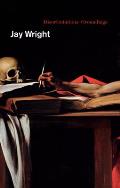 Jay Wright
Jay Wright
Author of Disorientations: Groundings
"He brought the oral tradition to Jacobean blank verse and stewed his fusions in African, Native American, and Spanish mythology. Complex, ambitious, and as unclassifiable as the country itself, Wright is my pick for American poetry's most unsung hero."
Find out more about him here.
÷ ÷ ÷
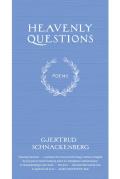 Gjertrud Schnackenberg
Gjertrud Schnackenberg
Author of Heavenly Questions
"Schnackenberg helped reclaim form poetry as a space for imagination, invention, and narrative depth. I know it sounds grandiose to say that future generations will discover her like previous generations rediscovered Christina Rossetti, but the sentence can't leave my head."
Read her poem "Supernatural Love."
÷ ÷ ÷
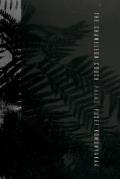 Yusef Komunyakaa
Yusef Komunyakaa
Author of The Chameleon Couch
"Yes, there are his huge themes (Vietnam, the blues, jazz, and the range of the African American experience through his eyes). His poems wouldn't be so powerful, however, if they didn't have his depth of perception, care for language, and tremendous sensitivity."
Read his poem "After Summer Fell Apart."
÷ ÷ ÷
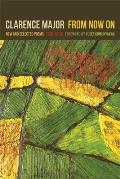 Clarence Major
Clarence Major
Author of From Now On: New and Selected Poems, 1970-2015
"Modernism's overlooked son. When too many of Ezra Pound's devotees were more interested in libertarian cultism than poetics, Major brought literary experimentation to the South Side of Chicago (and the South) and found fresh ways to 'make it new.'"
"Always" by Clarence Major
Potentially useful patterns of thought floated through the air.
Every thought I grabbed was faulty.
But there was always something to gain by keeping patterns.
There was always something to gain by breaking patterns.
I was living calmly in patterns.
That was my pattern. I was one with the nation.
Yet I was trying to be innovative.
I unstrapped my beneficent harness for more freedom.
I made my way through cobwebs into brighter light.
Occasionally I drank a beer.
The deer in my headlights stopped then continued.
The deer in the wallpaper moved always the same way.
I went to G. G.'s on a regular basis—my oasis.
I always picked up the newspaper on the way in.
The delivery truck double-parked every Thursday.
At G. G.'s the cook always beat the eggs twenty times.
Customers gazed into laptops for social thrills!
Customers talked into cellphones for personal thrills!
At home I used a coffee mug with a George Eliot quote.
I threw my beneficent harness in the trash.
Then I drove my car out to the sea to see the sea.
÷ ÷ ÷
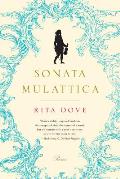 Rita Dove
Rita Dove
Author of Sonata Mulattica
"In Dove's hands, the English-language lyric poem was sleek, free of the Merrillian purple line or the Lowellesque too-grand gesture, capable of an uncommon beauty in common words. She also brought a music and narrative nuance that was too often missing in the poetry of the black arts movement."
Read her poems here.
Follow her on Twitter @dovelyrita.
÷ ÷ ÷
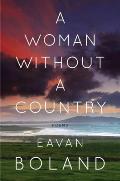 Eavan Boland
Eavan Boland
Author of A Woman Without a Country
"In the discipline of art and poetry (and with an often-stunning sense of a musical line), her work told stories about women that direly needed to be told and debunked myths about gender that direly needed to be debunked."
Find out more about her here.
÷ ÷ ÷
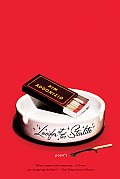 Kim Addonizio
Kim Addonizio
Author of Lucifer at the Starlite
"For my money, she's Whitman's hippest and most glorious living progeny; singing the body electric her way, putting a complex blues on paper and fusing tongues and cultures good enough to make the most hard-assed nationalist believe that this American Experiment is something worth a damn."
Follow her on Twitter @kim_addonizio.
"The Women" by Kim Addonizio
We turn sixteen. We cheap wine
and Vicodin. We Dexadrine.
We stolen bracelets and clothes
disordered in boys' cars
and falling down on dance floors.
We waste years and wishes
and finally marry
or wait for a king who does dishes.
We curse bosses.
We birth give and bring forth
and feel our unworth.
We divorce. We grow
uncool. We carpool.
We forgive those who lie down against us.
We lose June. We lose July.
In August we look in mirrors and want to die.
We hot flash. We worry cash.
Night cream lotus jewel and bicep curl
we try. We buy high heels.
We lunch. We find lumps.
We put our feet in the stirrups
and our lives in the hands
and our hearts to the wheel
which grinds us,
and so
over time
we polish to a hard shine
and we divine.
÷ ÷ ÷
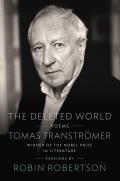 Tomas Tranströmer
Tomas Tranströmer
Author of The Deleted World
"Swedish winters were just as majestic a template for him as the Florida Keys were for Wallace Stevens. (Only Tranströmer generally went from strength to strength and never ruined poem after later poem with such pneumonic crutches as 'silly' women, 'stupid' blacks, 'the immortality' of 'man.')"
Read his poem "After a Death."